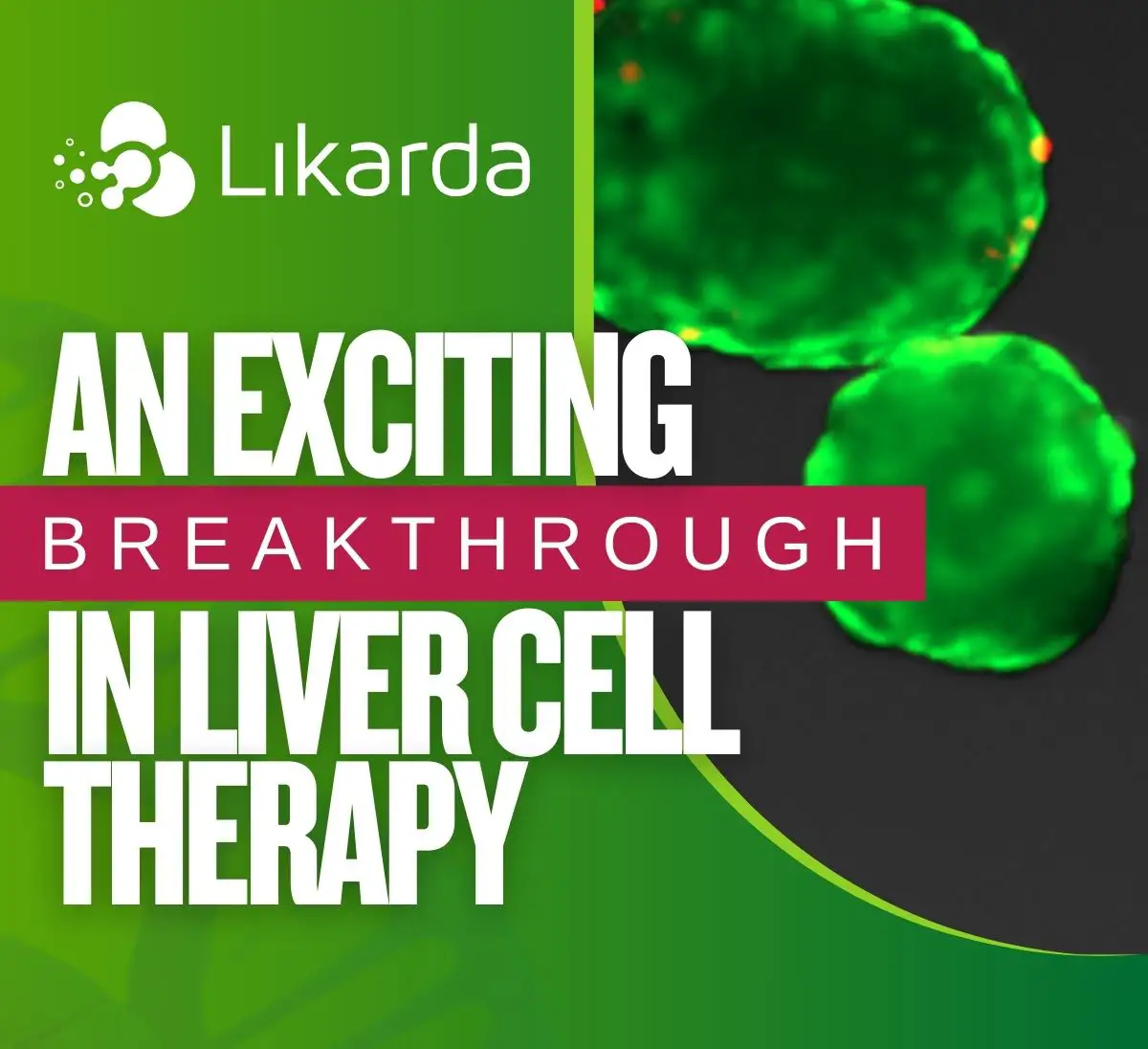Likarda Announces Peer-Reviewed Publication Highlighting Hydrogel Encapsulation with CSS Can Overcome Major Obstacle of Liver Cell Therapies
Likarda’s proprietary Core-Shell Spherification® (CSS®) technology improved long-term performance of transplanted liver cells without triggering an immune response
Kansas City, MO, April 22, 2025
Likarda, a leading biotech company specializing in the development of enabling technologies for the delivery of both cell therapies and large molecule biologics, announced a new peer-reviewed publication that demonstrates a promising improvement in the effort to develop liver cell-based therapies for patients with chronic liver disease. Likarda’s proprietary Core-Shell Spherification® (CSS®) hydrogel encapsulation successfully extended hepatocyte viability in vivo without causing the inflammatory and fibrotic immune responses seen with a more common alternative approach. Results of the study, published today in Tissue Engineering, support the use of CSS for delivering cell therapies for liver disease and suggest the approach will be useful for other cell types, such as islet cells for type 1 diabetes.
Despite its prevalence, end-stage liver disease remains difficult to treat, relying heavily on liver transplantation – which is limited by the availability of donors and challenged by immune rejection. Researchers and drug developers have sought to transplant healthy hepatocytes as an alternative treatment approach, but any positive effects have been transient as most cells are lost within a month. One promising approach to extend durability has been encapsulating cells in a scaffold, and an alginate-encapsulated therapy reached clinical trials, but development was shelved after it induced an immune response.
Using Likarda’s CSS platform to develop hydrogel microspheres made from polyvinyl alcohol (PVA) instead of alginate, researchers led by Dr. Stephen Harrington compared the durability and immunogenicity of the two approaches. They found that the hepatocytes delivered in PVA microspheres were superior to alginate encapsulation in metabolic activity, viability, and function, in vitro and in vivo. In addition, the PVA microspheres did not produce the fibrosis seen in mice receiving alginate microspheres.
“These promising results further support the versatility of hydrogel-based encapsulation, especially when added to previous studies demonstrating safety and durability of CSS-encapsulated stem cells, as well as successful and durable in vivo islet delivery in a model of diabetes,” said Lisa Stehno-Bittel, an author on the paper and co-founder of Likarda. “On the strength of these findings, we are exploring opportunities to partner with liver cell therapy developers to deliver a treatment for this devastating disease. We look forward to additional demonstrations of CSS to deliver cell-based therapeutics, as well as other biologics, and small molecules.”
About Likarda
Likarda is revolutionizing the delivery of cell therapies, biologics, and small molecules, making these life-changing treatments accessible to more patients with chronic and life-threatening diseases. At the core of Likarda’s innovation is Core-Shell Spherification® (CSS®), a highly customizable polymer-based delivery platform. This cutting-edge technology ensures therapeutics are protected, precisely delivered, and retained at their target—whether it’s the tumor microenvironment, sites of organ degeneration, or other critical areas.
By enabling targeted, sustained release, Likarda’s solutions enhance therapeutic efficacy while reducing off-target effects and improving patient outcomes. The platform’s versatility supports a range of applications, from immune protection in cell therapy to extended-release biologics, paving the way for next-generation treatments across oncology, regenerative medicine, and other disease areas.
With a commitment to innovation, scalability, and accessibility, Likarda is poised to transform drug delivery and expand the reach of advanced therapeutics. To learn more, visit Likarda.com.


